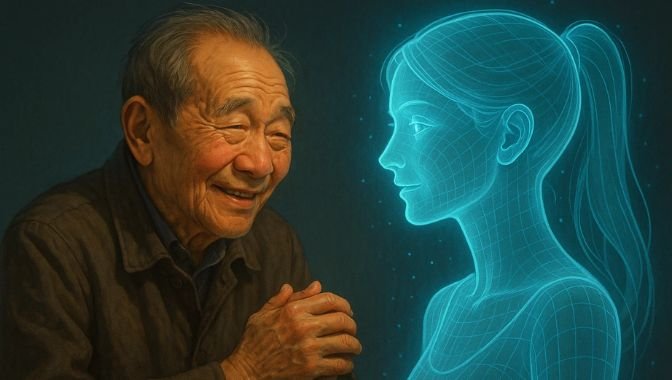In a shocking turn of events from Beijing, a 75-year-old Chinese man has asked his wife for a divorce after becoming emotionally attached to an AI partner. The case sheds light on the growing psychological and ethical concerns around AI love obsession.
A Virtual Affair Turns Real for Jiang
The man, identified as Jiang, reportedly met a digital avatar through social media. Captivated by her youthful appearance and pre-programmed flirty dialogues, he began spending most of his time engaging with her. Jiang described the AI woman as a beautiful young partner. Who gave him attention and companionship, leading to a deep emotional dependency.
His attachment grew so strong that he began distancing himself from his wife of several decades. Shocked by his behavior, his wife confronted him. Only to learn that he wanted a divorce to commit his life entirely to the AI relationship.
Family Intervention and Realization
It was only after his adult children intervened that Jiang began to understand the illusion of such digital companionship. They explained to him that AI avatars are programmed to mimic emotional support and affection, but lack real human connection. Experts say this incident reflects a rising trend among elderly people in China, where loneliness makes them more vulnerable to manipulative AI-driven platforms.
Also Read Seoul Launches Hologram Police Patrols to Tackle Rising Street Crime
Rising Concerns Over AI Relationships
Psychologists warn that AI love obsession could blur the lines between emotional support and manipulation, especially for isolated individuals. Such cases raise serious ethical questions about the responsibility of developers who design digital avatars intended to provoke strong emotional bonds.
Jiang’s case has sparked debates in China about how far artificial intelligence should go in simulating human relationships and the potential risks of people substituting real human connection with AI companionship.











